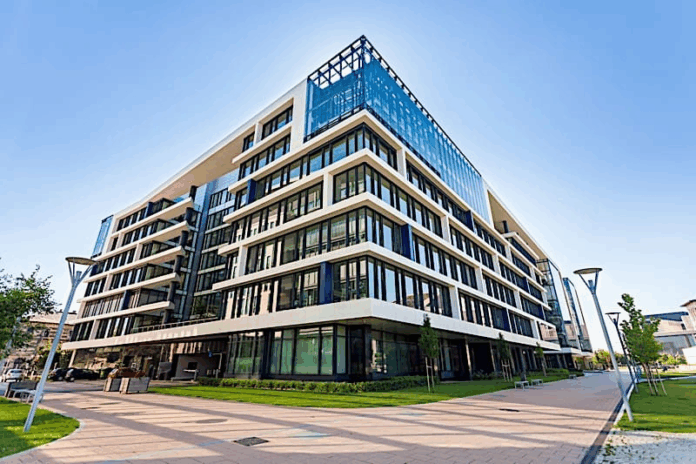Investing in commercial properties can be a great way to build wealth and generate steady income. However, like any investment, it requires careful thought and planning. Commercial properties come with their own unique challenges and opportunities, so understanding the key factors before making a decision is essential. This article will guide you through the top considerations when investing in commercial properties to help you make smart and informed choices.
Understand the Types of Commercial Properties
The first step in investing in commercial properties is to understand the different types available. Commercial properties include office buildings, retail spaces, warehouses, industrial buildings, and multi-family apartment complexes. Each type serves different purposes and comes with different levels of risk and return. For example, office buildings may depend on the local job market, while retail spaces are influenced by consumer trends. Knowing the type of commercial property that fits your investment goals can help you focus your efforts and research effectively.
Location is Key
One of the most important factors when investing in commercial properties is the location. A good location can mean higher rental income, better tenant demand, and increased property value over time. Consider properties in areas with strong economic growth, good transportation links, and amenities like restaurants and shopping centers. The location should also match the type of commercial property. For instance, retail spaces perform better in busy areas with high foot traffic, while warehouses benefit from proximity to highways or ports. A strong location lays the foundation for a successful investment.
Analyze the Financials Carefully
Before investing in commercial properties, it is crucial to analyze the financial aspects in detail. Look at the price of the property compared to similar buildings in the area, the expected rental income, and the operating expenses like taxes, insurance, and maintenance. Calculate the net operating income (NOI), which is the income after expenses, to understand the property’s profitability. Also, consider the capitalization rate (cap rate), which shows the rate of return on the property. Understanding these financial figures helps you evaluate whether the investment meets your return expectations and fits your budget.
Consider the Condition of the Property
The physical condition of commercial properties can greatly affect your investment. Older buildings may require significant repairs or renovations, which can add to your costs. On the other hand, newer properties might come with higher prices but fewer maintenance issues. It is important to conduct a thorough inspection before buying. Check for structural problems, electrical and plumbing systems, roofing, and compliance with safety regulations. Being aware of the property’s condition allows you to estimate future expenses and avoid unexpected problems after purchase.
Evaluate the Tenant Quality and Lease Terms
Commercial properties often come with tenants who rent the space. The quality of tenants and the terms of their leases are important factors to consider. Stable, long-term tenants provide steady income and reduce the risk of vacancies. It is useful to review the tenant’s business history, creditworthiness, and lease length. Short-term leases may mean more frequent tenant turnover and periods without rent, while long-term leases offer more security but less flexibility. Understanding tenant quality helps you predict cash flow and the overall stability of your investment.
Understand the Market Trends
Keeping an eye on the market trends in commercial real estate is essential. The demand for commercial properties can change due to economic conditions, industry shifts, or changes in work habits like remote work. For example, some office spaces have seen lower demand due to more companies allowing employees to work from home. Staying informed about market trends helps you choose properties that will remain desirable and profitable. Research local economic indicators, vacancy rates, and upcoming developments to gain insight into the market’s direction.
Plan for Management and Maintenance
Owning commercial properties requires ongoing management and maintenance. Decide if you will manage the property yourself or hire a professional property management company. Management includes finding and keeping tenants, collecting rent, handling repairs, and ensuring the property meets legal standards. Proper management keeps tenants satisfied and preserves the property’s value. Maintenance costs should also be budgeted, as neglecting repairs can lead to higher costs and loss of tenants in the long run.
Consider Financing Options and Risks
Commercial properties usually require a larger investment than residential real estate, often involving loans or mortgages. Explore different financing options, interest rates, and loan terms to find what suits your financial situation best. Be aware of the risks involved, such as market downturns, tenant defaults, or unexpected expenses. Having a clear financial plan and risk management strategy will help protect your investment and prepare you for challenges that may arise.
Conclusion
Investing in commercial properties can offer significant financial rewards, but it also requires careful consideration of many factors. By understanding the types of commercial properties, focusing on location, analyzing financials, evaluating tenant quality, and staying informed about market trends, you can make better investment decisions. Additionally, planning for property management, maintenance, and financing is crucial to ensure your investment remains profitable and secure. With proper research and preparation, investing in commercial properties can be a smart and rewarding step toward building long-term wealth.





